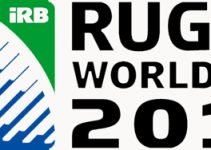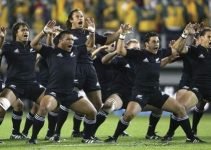The try from the end of the world such captured the imaginations of rugby fans that nearly 20 years later it is still spoken about in excited tones. The try was scored by France fullback Jean-Luc Sadourny against the All Blacks at Eden Park in 1994. Even with the explosion of thrilling tries brought on by professionalism’s formative years and despite the increased production values, media hype and general athletic impressiveness surrounding today’s efforts, it still holds its place amongst the greatest tries ever scored. Much of the credit for this, of course, must be placed on the try itself. The try was 30 seconds of what rugby pundits inexplicably refer to as ‘French flair,’ and in fact was likely the flashpoint that permanently etched France’s association with backs-against-the-wall, unbelievable plays. In this case, that flair culminated in a perfect storm of running angles, offloads, precision passing, speed and intuition. The ball was run 80 metres and sent from one side of the field to the other, stopping briefly for a lightning quick two second ruck, and passing through nine sets of hands before being scored by fullback Jean-Luc Sadourny. However, adding the exclamation point on the end of the try and ensuring its place in rugby history was the context of which it was scored, but much of which is forgotten now, nearly 20 years later.
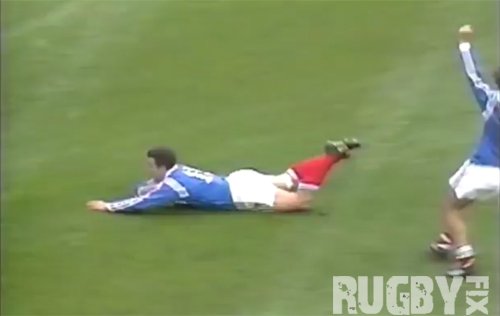
History tells us that the All Blacks were in a transitional phase, having whitewashed the Lions the year before, but before they settled on the team that would make the Rugby World Cup final the year later. However, the All Blacks were favourites leading into the Christchurch match and were probably a touch complacent. France, on the other hand, was an established team renowned for their mix of rough and tough forwards and Gaelic flair. They had won the Five Nations the year before in 1993, and would narrowly lose the Rugby World Cup semi final to eventual winners South Africa in 1995. It consisted of France greats Olivier Roumat, Phillipe Sella and Abdelatif Benazzi. Current France coach Philippe Saint-André was the captain.
Many of the All Black team had or would go on to carve out illustrious All Black careers. Players such as Sean Fitzpatrick, Olo Brown, Ian Jones, Zinzan Brooke, John Kirwan and Frank Bunce would contest for positions in a greatest ever All Black 15. However, the team that would go on to dominate world rugby over the next three seasons would be markedly different. Less than a year later a number of new faces went on to forge a new chapter in All Black history; one that would be famously bundled out of the 1995 Rugby World Cup final but win an epic first test series in South Africa in 1996. For example, Andrew Mehrtens and Josh Kronfeld were introduced less than a year later, while pre-capped All Blacks Michael Jones, Craig Dowd, Graeme Bachop, Jeff Wilson and Walter Little did not take the field against France.
Watch The Try from the End of the World Video:
While international rugby fans may assume he debuted at the 1995 Rugby World Cup, a history footnote in the series was that Jonah Lomu made his inauspicious introduction to international rugby. Lomu debuted against the French in Christchurch, and at 19 years and 45 days old he has the distinction of being the youngest man to play test rugby for the All Blacks. Lomu had announced himself to New Zealanders that year in international sevens but was still transitioning from playing number eight at school to being a winger. He was also famously considered to lack the training ethic and fitness to play at the highest level and the young and inexperienced player was found wanting in the France series. Fortunately Mains eventually tried again. Not selected for the next four tests against South Africa and Australia, Lomu made his comeback at the World Cup the next year. Lomu took the rugby world by storm at the Rugby World Cup in South Africa the following year.
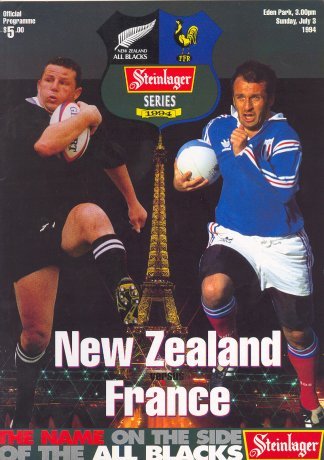
The Background to the Game:
On Sunday the 3rd of July, 1994, in front of 40,000 spectators, the All Blacks hosted France at Eden Park in Auckland as part of a two test series. A week before the Eden Park test France had humiliated the All Blacks at Christchurch, defeating them 22-8 in Phillipe Sella’s 100th match. All Blacks coach Laurie Mains had promised retribution and for 77 minutes the All Blacks delivered it. Unfortunately, missed kicks left France in the game in the 77th minute, and the rest is history.
To put the try and victory in context, France had never won a series in New Zealand, and Eden Park was then, and still is, a stronghold in world rugby. In fact, as the countdown to the 2011 Rugby World Cup drew near, much was made of the All Blacks invincibility at home, particularly at Eden Park. Now, in 2012 the All Blacks have won their last 23 games in New Zealand. Their record at Eden Park is even stronger. Over 70 tests have been played at the Auckland venue, with New Zealand winning nearly 60 of them. This 1994 loss to France was their last defeat at Eden Park, a record that stands 18 years. However, the All Blacks did draw with the Springboks a month after the France game.
The France and New Zealand rugby teams have a colourful history, particularly for a pair of teams not generally considered ‘traditional rivals’. New Zealand has beaten them in two Rugby World Cup finals, while France has also knocked New Zealand out of two Rugby World Cups. While France only have a 25% win record against the All Blacks, they are notorious for defeating them when they least expect it.
The Try From the End of the World: As it happened
Captain Philippe Saint-André took the ball about 18 metres in front of the France tryline from a downfield kick by All Black fly half Stephen Bachop. Moments earlier Saint-André had berated fullback Jean-Luc Sadourny for kicking the ball away with only minutes left and France trailing 20 to 16. Now the France captain was in the same predicament and had forced his own hand in having to run the ball, behind the 22m line and 10 in from touch. The unorthodox decision caught New Zealand napping, but they should have been aware France needed to throw everything at them to try and steal the game in the closing minute.
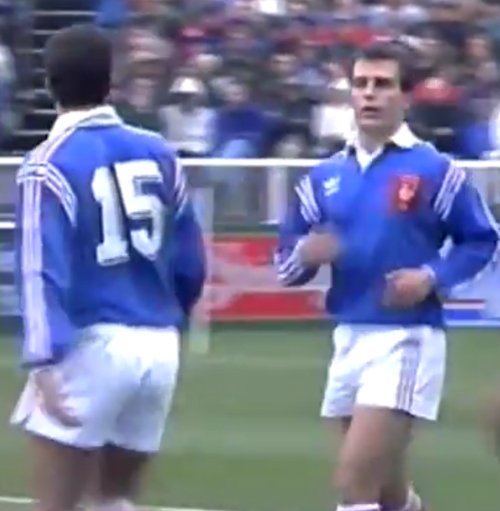
In fact, in his 1996 self-titled biography Mains recalled that despite the All Blacks dominating the game up till that point that he was very wary of a French counterattack. New Zealand had allowed them to stay in the game by missing so many goals “… and that can be fatal with the French, as they demonstrated by scoring one of rugby’s most spectacular tries in the final minute…a try from the end of the world, as their captain Philippe Saint-Andre described it”. An intercept try by winger Emile Ntamack flattered France in a halftime score of New Zealand 9, France 13.
Saint-André brought the ball into the centre of the field before making a scything run up the centre, sidestepping two All Blacks before going down in the tackle of lock Mark Cooksley, a few metres short of the 40m line. Within two seconds the ball was recycled and cleared by hooker Jean-Michel Gonzalez to flyhalf Christophe Deylaud. Deylaud passed outside to blindside flanker Abdelatif Benazzi, who wrong footed giant All Blacks winger Jonah Lomu, and spread the ball again to winger Emile Ntamack. In five seconds the ball had travelled twenty metres, through three sets of hands. Ntamack then cut inside and offloaded in the tackle of John Kirwin to openside Laurent Cabannes. Cabannes changed the angle and flicked the ball back to replacement midfielder Yann Delaigue, before falling in the tackle of halfback Stu Forster. Delaigue then started the movement to the other sideline, evading the Frank Bunce tackle before passing to France scrumhalf Guy Accoceberry, who was running at a sharp angle. The pass and angle left All Black openside Mike Brewer sitting embarrassingly in nowhere land, while the sharp run continued towards the right hand corner, outpacing three All Blacks who were desperately scrambling to cover. As they closed in Accoceberry, whose momentum would actually carry him over the tryline anyway, offloaded to Sadourny, who dropped down to finish the immortal try.
Such was the magnificence of the try that even the notoriously parochial New Zealand crowd felt moved to stand and applaud the play that consigned them to their third defeat in a row.
Deylaud kicked the sideline conversion, bringing the score to 20 to 23. With 45 seconds remaining, France took the ensuing kickoff and cleared to touch around the 22m line. All Black hooker and captain Sean Fitzpatrick desperately infiltrated the France lineout and madly swiped the ball backwards. Halfback Stu Forster was sacked by the French forwards. New Zealand retained the ball and tried desperately to rumble the ball upfield, being awarded three penalties in the process. However, the ball was eventually caught in a maul and France was awarded the game. It marked first ever France’s series win in New Zealand, and the first time New Zealand had lost three tests in a row in 23 years.
Following the whistle the crowd rushed the field, as was customary at the time. A heartbroken All Black team congratulated France and traded jerseys, and the French team spontaneously erupted into song as a black jersey-laden French captain Philippe Saint-André conducted a post-match interview, humbly giving credit to the All Black’s role in world rugby. Saint-André, the man who started the movement, would later call it “a counter-attack from the end of the world”.
It is generally considered one of the greatest tries ever scored, often ranked alongside ‘The Try’ scored by Gareth Edwards from the Barbarians against New Zealand in 1973.
1994 New Zealand vs France Game Details:
All Blacks Team:
1. R. W. Loe, 2. S. B. T. Fitzpatrick (captain), 3. O. M. Brown, 4. B. P. Larsen, 5. I. D. Jones, 6. M. S. B. Cooksley, 7. M. R. Brewer, 8. Z. V. Brooke (replaced by A. Pene) , 9. S. T. Forster, 10. S. J. Bachop, 11. J. T. Lomu, 12. M. J. A. Cooper, 13. F. E. Bunce, 14. J. J. Kirwan, 15. J. K. R. Timu
New Zealand All Blacks Scorers:
Sean Fitzpatrick Try; Matthew Cooper Penalty Kicks(5)
France Team:
1 L. Benezech, 2 J-M. Gonzalez, 3 C. Califano, 6 A. Benazzi, 4 O. Roumat, 5 O. Merle, 7 L. Cabannes, 8 P. Benetton, 9 G. Accoceberry (replaced by X. Blond), 10 C. Deylaud, 11 E. Ntamack, 12 T. Lacroix (replaced by Y. Delaigue), 13 P. Sella, 14 P. Saint-Andre (C), 15 J-L. Sadourny
French Scorers:
Emile Ntamack, Jean-Luc Sadourny Tries; Conversions: Christophe Deylaud, Thierry Lacroix; Penalty Goals: Christophe Deylaud, Thierry Lacroix (2)
The match was refereed by Derek Bevan from Wales.
Share:
